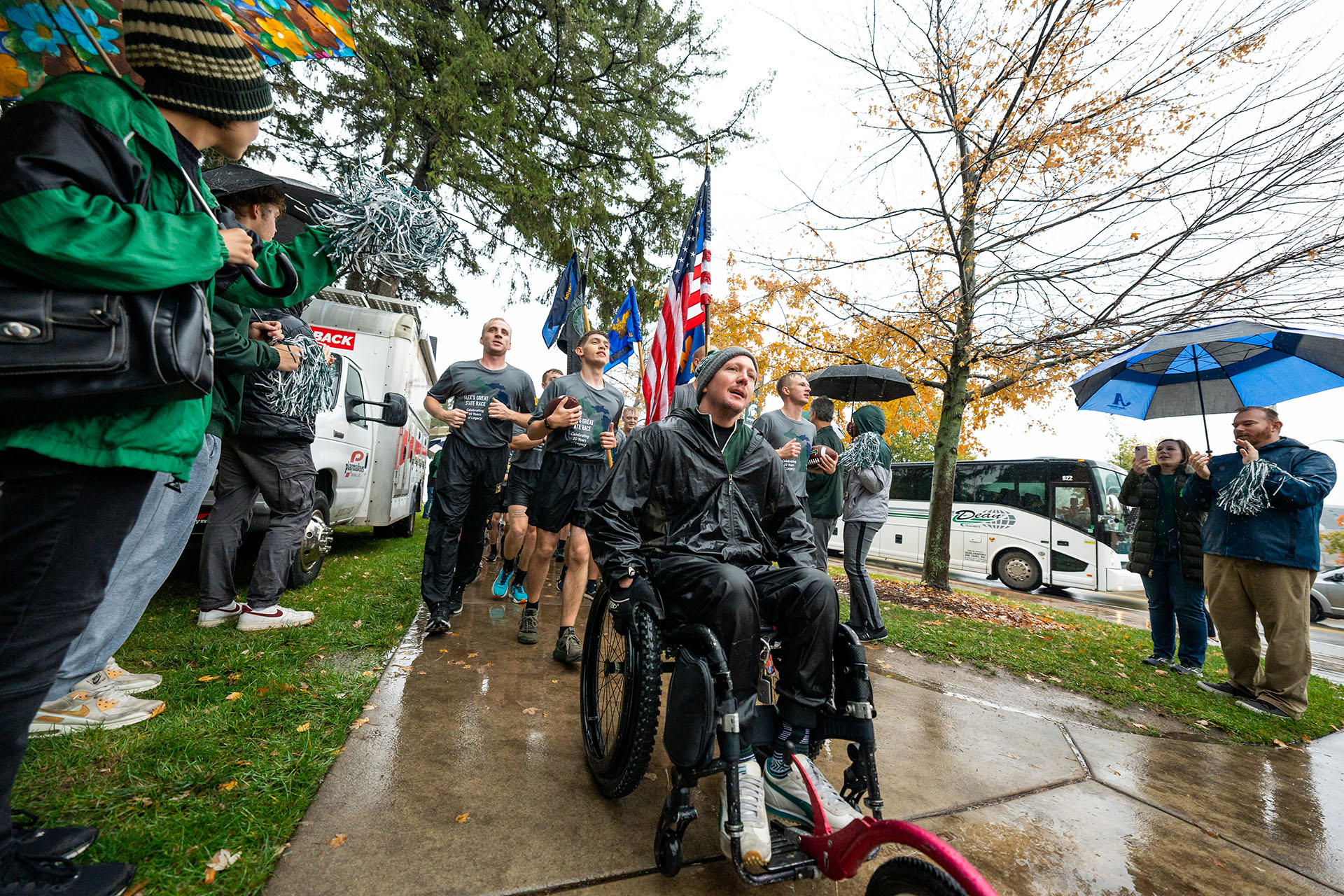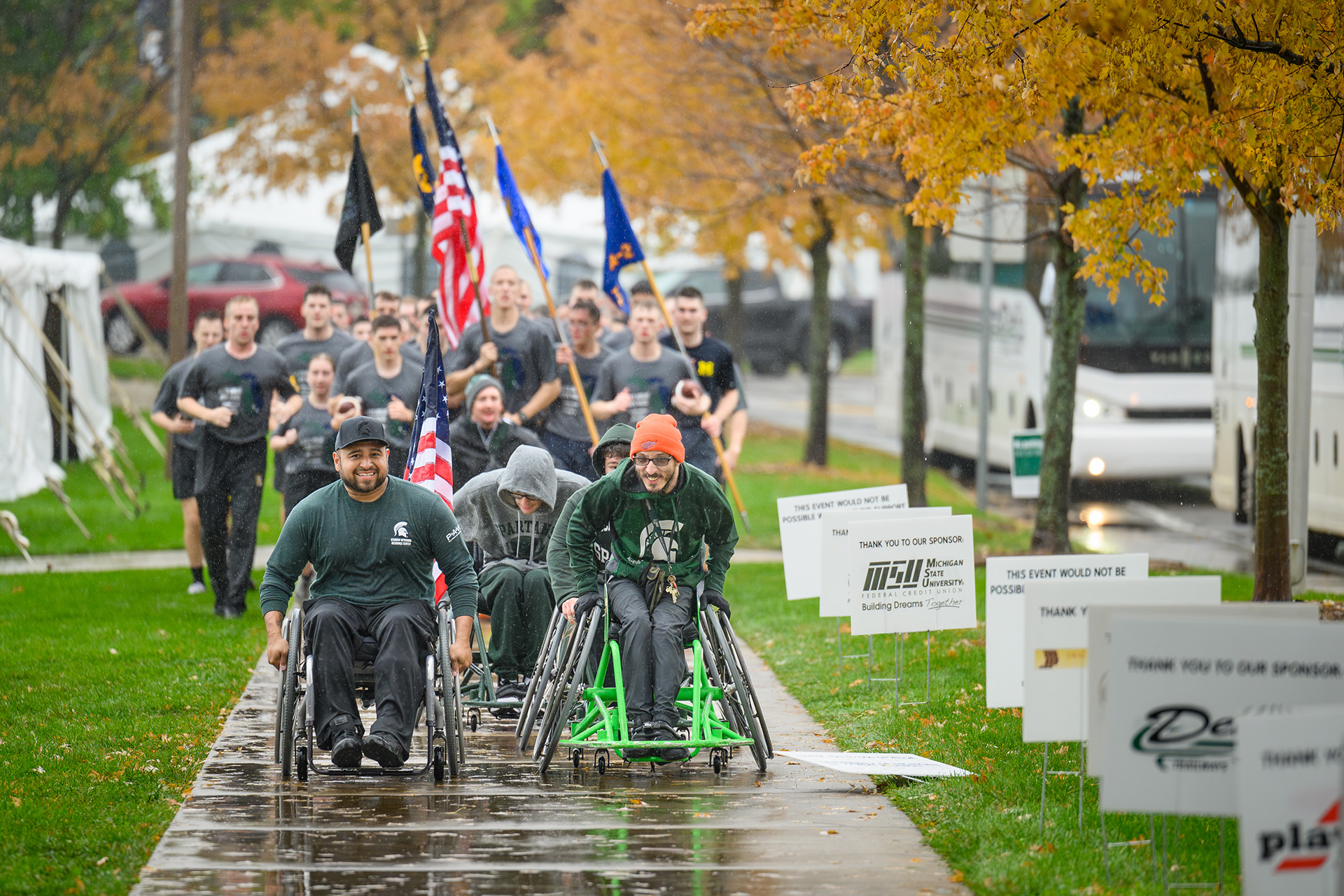For the past 11 years, the renowned rivalry during the annual football game between Michigan State University and the University of Michigan has been pushed aside for a cause both teams whole-heartedly support: Alex’s Great State Race, or AGSR, an event that raises awareness of students with disabilities.
This legacy started in 2014 in remembrance of Alex Powell, a first-year MSU student who was diagnosed with an aggressive form of cancer and ultimately succumbed to the disease. Every year before the big game, ROTC cadets from the away team run the game ball to the home team.
This year, the race will start on MSU’s campus, and the cadets will depart from The Spartan statue on Oct. 25 at 1:00 a.m. MSU Interim Provost Thomas D. Jeitschko will speak at the departure ceremony.
The race will conclude at 11:45 a.m. at The Diag on U-M’s Ann Arbor campus. The race is approximately 64 miles long, and supporters from both universities are welcome to cheer on participants before they take off from East Lansing and once again when the cadets arrive in Ann Arbor.
In addition to the cadets, the race will also include a group of student-athletes with disabilities along with Michigan Supreme Court Justice Richard Bernstein, who has joined the last few miles of the race since 2017.

The AGSR planning committee, which invests countless hours of time and talent to coordinate the race each year, includes Alex Powell’s mom, Juliana Powell, Committee Chair Michelle O’Kelly, MSU and U-M leadership, Army representatives, and other stakeholders like Courtney Bollman from Dean Transportation. MSU’s team in charge of the race includes Resource Center for Persons with Disabilities, or RCPD, co-chairs James Madaski, Kiersten Manos and Rachel Giddings with University Health and Wellbeing Director of Communications Courtney Placinta focusing on media outreach.
“Michigan State University is proud to partner with the University of Michigan for the 11th consecutive year for this incredible event. The collaboration not only honors Alex Powell but exemplifies how the MSU–U-M rivalry can transcend competition, foster camaraderie and support a cause greater than our football traditions,” says Kristin Traskie, executive director of health promotion, engagement, accessibility and accommodations in University Health and Wellbeing. “I’m grateful to the dedicated teams at both universities, whose hard work and passion to make quality education accessible to all brings this event to life.”
This year the race has an additional virtual component that aims to increase support and awareness of the race. The new virtual component allows participants to run at the same time as the cadets. But instead of running the route to Ann Arbor, virtual participants can run and log their distance from wherever they are,” says Giddings, RCPD’s public relations coordinator. Giddings anticipates that the virtual component will “promote public participation and inspire friendly competition between the two schools to see who can donate the most miles.”

Although the virtual component is a first for the race, Giddings hopes that in the future, it will reach a national audience of Spartans, Wolverines, alums and overall fans. Race proceeds support MSU’s RCPD and U-M’s Student Accessibility and Accommodation Services. These donations enable equal access to education services by supporting the needs of students with disabilities at both universities.
Rain or shine, supporters from both institutions come out to support Alex’s Great State Race. The race speaks to Alex’s legacy of courage, humor and resilience in the face of hardship and brings awareness to the RCPD’s services on Michigan State’s campus as well as those services at the University of Michigan. The race also provides the space to promote a meaningful and friendly alliance prior to the beloved football game that vies for the infamous Paul Bunyan Trophy.
